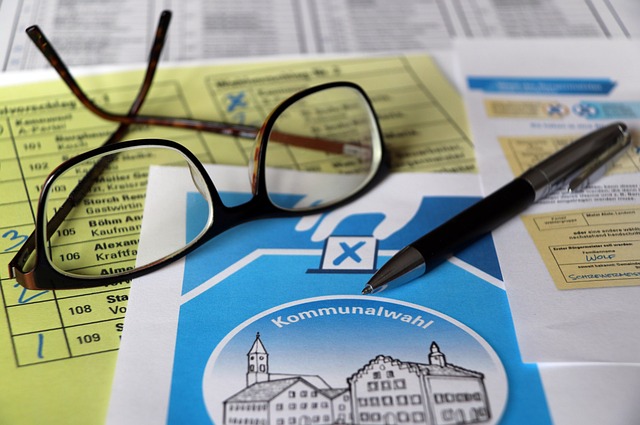Grandparent rights in Oregon are legally protected, allowing grandparents to maintain significant relationships with grandchildren under specific circumstances like parental divorce or health issues. The state's laws prioritize familial connections and child well-being, with visitation and custody decisions based on the best interests of the child. Key factors include relationship quality, impact on well-being, and parental cooperation. Grandparents must establish a strong bond through consistent contact to secure rights, which involve a legal process starting with proving parentage and qualification as a "legal guardian" or "relative." Court petitions, hearings, and evidence of the grandparent-grandchild bond are crucial for success. Legal strategies help navigate complex situations, ensuring grandparent rights while considering the child's best interests.
In Oregon, understanding and securing grandparent rights is crucial for fostering family connections. This comprehensive guide explores the essential information every grandparent should know. We delve into the legal basis for access, clarifying the criteria to establish a meaningful relationship with grandchildren. Learn about the processes to gain legal recognition, navigating the potential challenges unique to Oregon. Discover practical solutions to ensure your bond remains strong and protected under the law. Explore these key aspects of grandparent rights in Oregon today.
- Understanding Grandparent Rights in Oregon: An Overview
- Legal Basis for Grandparent Access in the State
- Establishing a Relationship: Criteria and Requirements
- Processes to Gain Legal Recognition as a Grandparent
- Common Challenges and Their Solutions in Oregon
Understanding Grandparent Rights in Oregon: An Overview

In Oregon, grandparent rights are recognized and protected by law, allowing grandparents to maintain a significant relationship with their grandchildren. These rights provide a framework for grandparents to seek access and time with their grandchildren, even if they don’t have legal custody. Understanding these rights is crucial, especially when navigating family dynamics and legal proceedings.
Oregon’s laws ensure that grandparents can petition the court for visitation or custody under specific circumstances. These situations may include when parents are divorced, deceased, or unable to care for their children due to mental or physical health issues. The state aims to preserve familial connections and grant grandparent rights accordingly, fostering a child’s well-being and family legacy.
Legal Basis for Grandparent Access in the State

In Oregon, grandparent rights are recognized and protected by law, providing a legal basis for grandparents to seek access to their grandchildren. The state’s statutes outline specific circumstances under which grandparents can petition for visitation or custody, ensuring their significant role in a child’s life is acknowledged. According to Oregon Revised Statutes (ORS), grandparent rights arise from the natural bond between grandparents and grandchildren, fostering stability and connection within families.
The legal framework allows courts to consider the best interests of the child when deciding on grandparent access. This involves evaluating factors such as the quality of the relationship, the potential impact on the child’s well-being, and the parents’ willingness to facilitate visitation. ORS provides a structured approach, enabling grandparents to navigate the legal system to protect their rights and maintain meaningful connections with their grandchildren.
Establishing a Relationship: Criteria and Requirements

Establishing a strong relationship is often crucial for grandparent rights in Oregon. The state recognizes the significant role grandparents can play in a child’s life, and this connection is a fundamental aspect of legal proceedings. To establish a relationship, grandparents must demonstrate their commitment to fostering a meaningful bond with the child. This can be achieved through consistent and regular contact, including visits, phone calls, and other forms of communication. The court will assess the quality and frequency of these interactions to ensure they meet the criteria for a substantial parental relationship.
In Oregon, grandparent rights are granted based on specific requirements. These include showing that the grandparent has been involved in the child’s life or has had significant contact with them. Additionally, the court may consider the child’s well-being and the potential benefits of granting grandparent rights, such as stability, love, and support from extended family members. It is essential for grandparents to gather documentation to prove their parental connection and active participation in the child’s upbringing.
Processes to Gain Legal Recognition as a Grandparent

In Oregon, establishing and securing grandparent rights involves a legal process that requires understanding specific laws and procedures. The first step for grandparents seeking recognition is to determine if they fall under the state’s definition of a “legal guardian” or “relative.” This often requires providing proof of the child’s parentage and the grandparent-grandchild relationship. Once established, they can file a petition in court to gain legal custody or visitation rights, outlining their case and reasons for involvement in the child’s life.
The court will then review the petition and may schedule hearings to gather more information. During this process, it’s crucial to present compelling evidence of the grandparent-grandchild bond, any existing parenting role, and the benefits of legal recognition. Successful navigation of these steps can result in formal grandparent rights being granted, ensuring a legal framework for ongoing involvement in the grandchild’s life.
Common Challenges and Their Solutions in Oregon

In Oregon, grandparent rights can sometimes be complex and challenging due to various factors. One common issue arises from distance and physical separation, especially when grandparents live out of state. To overcome this, legal avenues exist to establish a significant relationship with the grandchild, such as regular visits, phone calls, and direct communication with the child’s parents or guardians.
Another challenge involves changing family dynamics and custody arrangements. Grandparents may face obstacles in maintaining their rights if there are conflicts within the family. Legal representation and clear, open communication can help navigate these complexities. Court orders, parental agreements, and mediation are effective tools to ensure grandparent rights are protected while respecting the best interests of the child.
